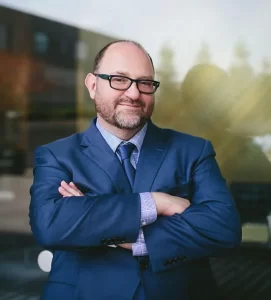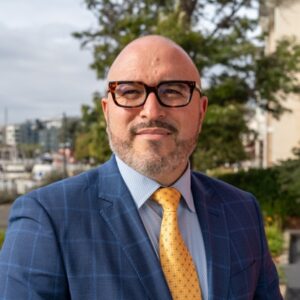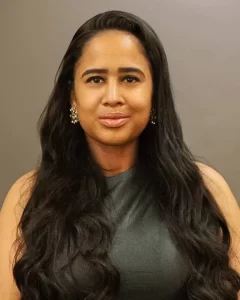Best Criminal Lawyer in Alameda County, CA
Joseph Tully
Criminal Lawyer
Our founding attorney, Joseph Tully, is sought out for his expert legal advice throughout California. With over 20 years’ experience as a criminal lawyer, in 1000+ felony and other cases, Tully served as felony trial counsel as a public defender before launching Tully & Weiss in May 2001. Joseph Tully is a leading California criminal lawyer and author. As a criminal defense attorney he helps people defend their liberty and reputation in a broken criminal justice system. Joseph Tully and his firm have remarkable record of earning Not Guilty verdicts is based on hard work and dedication. They fight for the best possible outcome for each client.
With a statewide trial schedule that would exhaust the Lincoln Lawyer, Joseph Tully also provides expert commentary for media networks. Joseph provides legal analysis for media outlets and cable channels such as the East Bay Times, Law & Crime TV, 60 Minutes, Rolling Stone, and talk radio stations.
Joseph is both an author and lawyer. His book California: State of Collusion is an Amazon top seller. The gripping book documents abuses of the power granted to law enforcement and the judiciary by We the People. Conspiracy, cover ups, racial prejudice, sociopathic cops, backroom deals, and other outrages in California’s criminal justice system are the subjects of Joseph’s explosive volume.
Celebrity clients are just like all clients, and all clients are treated special. Respect, professionalism, discretion, and hard work for all. For Joseph Tully each client is a person with a life, a family, a job, a personal history – a human in trouble; someone he can help with a skill set developed over 15 years as a criminal lawyer. He will know your kids’ names, how your job is going, and he won’t judge you. Everyone at his law firm, Tully Weiss, treats every person with respect.
Ghazal Sharif
Criminal Lawyer
Ghazal Sharif of The G Law Firm defends people accused of driving under the influence of alcohol (DUI) throughout the Bay Area, including Pleasanton and San Jose. She helps people maintain their ability to drive and have their court case dismissed or reduced to a lesser offense.
We are the go-to law firm for the toughest DUI cases. We defend people with make–or–break matters, including licensed professionals, military service members, commercial drivers, undocumented immigrants, and drivers under 21.
Our knowledge, expertise, and tenacity set us apart and ensure our clients receive the best possible results. The time to call us is now because your driver’s license will be suspended unless a DMV hearing is requested within 10 days of an arrest. We offer free consultations and flexible payment plans.
Our most recent awards including,
• Expertise Best Alameda DUI Attorney
• Expertise Best Fremont DUI Attorney
• Thumbtack Top Pro
• Avvo Clients’ Choice Award
• Avvo 10.0 Top Attorney Rating
• Justia 10.0 Lawyer Rating
Elliot Silver
Criminal Lawyer
Elliot Silver is a veteran criminal defense attorney with unparalleled dedication and a reputation for getting results for his clients.
Elliot Silver always wanted to be a criminal defense attorney. He often points to a drawing he made at the age of five. It shows a courtroom scene and a youthful Elliot, enthusiastically shouting and a judge banging his gavel, screaming, “Silence in the Court!” The picture hangs in Elliot’s office. Even after 25 years as an attorney, he has yet to be silenced. His enthusiasm for defending the accused is a powerful force.
Elliot Silver was born in London, England. He attended the University of Miami for undergraduate school, where he received honors in Communication and History. In 1994, Elliot graduated from the University of Miami School of Law, where he was the mock trial finalist and editor of the school newspaper’s entertainment law section. After law school, Elliot worked as an assistant public defender in Miami-Dade, Florida for five years followed by private criminal defense practice and work as a specially-appointed public defender for the 11th Judicial Circuit in Miami-Dade County. Elliot has represented thousands of clients in various criminal matters from misdemeanors and DUIs to serious felonies carrying life sentences. Elliot has also successfully litigated an array of civil matters, which are often attached to criminal cases, such as asset forfeitures, domestic violence restraining orders, defending civil tort claims based on criminal conduct, and preserving individual gun rights.
With over 20 years of experience defending the rights of the accused, attorney Silver has perfected the art of meticulously building a case for trial and representing his clients with unapologetic tenacity. Attorney Silver is a master at cross-examination and the rules of evidence and procedure. No matter the charge or circumstances, attorney Silver can find success in even the most difficult cases.
Elliot has made the Bay Area his home and is proud to offer the legal services of Silver Law Firm to the good and hard-working people of California. Believing that everyone is entitled to a vigorous defense, he is dedicated to making himself available to his clients and protecting their rights. Whether you call, text, or email, Elliot is eager to help and will promptly respond with the answer you need. He is the rare example of a fierce, diligent, and caring advocate that you can trust.
Martin Caraves
Criminal Lawyer
With several misdemeanor and felony cases under his belt, Attorney Martin Caraves decided to establish the defense firm, Torres & Caraves Law, wherein he has continued to defend individuals and businesses in the criminal courts.
Mr. Caraves’ previous employment and education have been the key to his success in the field of criminal law. He first began developing his zealous advocacy skills at the Public Defender’s Office in Oakland, California, where he provided criminal defense representation to individuals facing felony and misdemeanor charges.
Thereafter, Mr. Caraves joined Torres Law Group, a boutique criminal defense firm in Oakland where he developed his litigation acumen by defending individuals and small businesses facing serious crimes that required intensive motion writing and pre-trial/trial litigation.
- University of California Berkeley, Bachelor of Science – Economics
- John F. Kennedy College of Law, Juris Doctorate
Jo-Anna Nieves
Criminal Lawyer
- Jo-Anna, formerly an attorney in Florida, now practices in Oakland, bringing valuable experience to California clients.
- Jo-Anna graduated from Florida State University at the age of 20 with two bachelor degrees, one in Multinational Business and another in Finance.
- She went on to earn her law degree from Florida State University in 2009.
- Jo-Anna has been recognized by SuperLawyers the past nine years for her legal work, earning the distinction of “Rising Star” which is given to no more than 2.5% of attorneys in each state.
- She currently serves as the President-Elect of the Alameda County Bar Association (ACBA) and previously worked for the Sacramento County District Attorney’s Office, providing her ample experience working with local prosecutors, law enforcement officers, and judges.
When you are charged with a criminal offense, you need a strong, experienced, and committed advocate. It’s a role that Jo-Anna Nieves has assumed many times, with great success. Jo-Anna began her post-bar legal career at the Sacramento County District Attorney’s Office, which gives Jo-Anna a rare perspective that she uses to support, advise, and defend you.
Mitchell Barraza
Criminal Lawyer
Mitchell Barraza is a contract attorney with Lamano Law Office. Before coming to Lamano Law, he served as a Volunteer Attorney at the San Francisco Public Defender’s Office where he represented clients charged with misdemeanors, including DUI, vandalism, gun possession, battery, and drug possession. Mr. Barraza has been nominated by the National Trial Lawyers as one of the Top 40 under 40 Criminal Defense Lawyers in California. The majority of clients he worked with were people of color, many of whom were Spanish speaking. He helped them move forward from what may have been a traumatic and stressful time in their life as being of service is what Mr. Barraza values. He believes that his clients are good people who are not defined by the criminal charges against them. He helps his clients navigate the criminal justice system with compassion and tenacity.
Mr. Barraza graduated cum laude from UC Hastings, now UC College of the Law, San Francisco. During law school, he served first as a staff editor, then as a production editor, for the Constitutional Law Quarterly, the oldest constitutional law journal on the West Coast. As staff editor, he edited articles for content, and as productions editor, he reviewed staff edits and prepared articles for publication. Mr. Barraza enjoys the art of writing, including writing motions for criminal defense. He worked in the Startup Legal Garage Corporate clinic, where he worked with entrepreneurs to set up their businesses and bring their ideas to life. He received the Cali Excellence for the Future Award in 2020 for earning the highest grade in Remedies. When he’s not in the office, you can find him on the tennis court or with a good book.
Francisco J. Vera
Criminal Lawyer
My last name says a lot about me and my law practice: Vera means true in Latin and side-path in Spanish. I practice criminal defense, personal injury and civil rights law because I am committed to following the path of truth.
I understand what my clients go through because I have walked in their shoes. I became a lawyer because as a young man growing up in working class neighborhoods, I witnessed countless number of injustices done to many impoverished, hard-working people. Today, I cannot stand idle to watch an often-broken legal system hurt good people in dire circumstances, people who at times have been forced to choose survival over law. I understand that people have to make difficult choices every day, just like I did in my younger years, and many are not as fortunate as I was.
I live and breathe my work as a trial lawyer. I go to sleep thinking about my clients and their issues. It defines who I am. It is my true path.
Robert byers, Esq.
Criminal Lawyer
I was born in San Francisco and raised in San Leandro, Fremont, Menlo Park, Redwood City, San Francisco, Burlingame, Hillsborough and San Mateo. I attended Burlingame High School, UC Davis, and Stanford Law School.
My first job was a paper route when I was 12 years old. In high school I worked at the San Mateo Adult School, Planned Parenthood, Burlingame Parks Department, NASA Ames Research Center, and Phillips and Ober Electric Supply. In college I cleaned the swimming pool at UC Davis, worked at Safeway, Round Table Pizza, a local group home, and the Yolo County Public Defender’s Office. During my college years I took a leave of absence from UC Davis and became a VISTA Volunteer working with homeless youth at the Larkin Street Youth Center in San Francisco.
In law school I worked at a small firm that practiced constitutional property law, the East Bay Community Law Project in East Palo Alto, the Alameda County Public Defender, and the California State Public Defender. My first job out of law school was at the Contra Costa County Public Defender’s Office in 1991. I have been in private practice in Oakland and the San Francisco area since leaving the Public Defenders’ Office in 1994.
California Senate Bill 1064: Understanding the Role of Uncorroborated Information in Criminal Cases
California Senate Bill 1064 (SB 1064) is a legislative proposal that addresses the use of uncorroborated information in criminal cases, specifically targeting its role in criminal convictions and legal proceedings. Uncorroborated information refers to evidence or statements that lack independent verification or supporting evidence. In criminal cases, the reliability of evidence is crucial, and SB 1064 aims to safeguard the rights of defendants by restricting the use of uncorroborated testimony or information in convictions.
This bill seeks to address the potential for wrongful convictions that can arise from relying on unverified or unreliable information, such as testimony from informants, co-defendants, or other sources that may have ulterior motives. The bill also aims to reform how such evidence is treated in court and to ensure that convictions are based on credible and corroborated information. In this article, we will explore the provisions of SB 1064, its implications for the criminal justice system, and the role uncorroborated information plays in legal proceedings.
Background: The Problem with Uncorroborated Information
In many criminal cases, prosecutors and law enforcement agencies rely on information provided by informants, witnesses, or co-defendants to build their cases. This information is often crucial to securing convictions, particularly in cases where direct evidence (such as physical evidence or video recordings) is lacking. However, problems arise when this information is not corroborated by other evidence.
Uncorroborated testimony or evidence is problematic for several reasons:
Unreliable Sources: Informants or co-defendants may have personal motivations for providing false or misleading information. They might be seeking leniency in their own cases or financial rewards, leading to the risk of inaccurate testimony.
Wrongful Convictions: Relying on uncorroborated information increases the likelihood of wrongful convictions. Innocent individuals may be convicted based on unreliable evidence, leading to miscarriages of justice.
Lack of Accountability: When uncorroborated evidence is allowed in court without proper scrutiny, it diminishes accountability for those providing such information. This undermines the fairness and integrity of the justice system.
SB 1064 seeks to address these issues by establishing clear guidelines for the use of uncorroborated information in criminal proceedings and ensuring that convictions are based on credible, reliable evidence.
Key Provisions of California Senate Bill 1064
SB 1064 includes several critical provisions designed to reform the use of uncorroborated information in criminal cases. These provisions aim to prevent the misuse of unreliable evidence and reduce the risk of wrongful convictions. Key aspects of the bill include:
Limiting the Use of Uncorroborated Testimony: One of the central tenets of SB 1064 is the restriction of uncorroborated testimony in criminal cases. Under the bill, uncorroborated information provided by informants, co-defendants, or other witnesses cannot be used as the sole basis for a conviction unless it is supported by additional evidence. This additional evidence must independently verify the information provided, ensuring its reliability.
Informant Testimony Scrutiny: SB 1064 places particular emphasis on the use of informant testimony in criminal trials. Informants, who are often used in exchange for leniency or financial compensation, can be unreliable sources of information. The bill requires that informant testimony be corroborated by independent evidence before it can be used in court. This provision aims to protect defendants from being convicted based on false or misleading testimony from individuals with personal incentives.
Strengthening the Requirement for Corroboration: In cases involving testimony from co-defendants or accomplices, SB 1064 mandates that corroboration is necessary for the testimony to be admissible. Co-defendants may provide false testimony in an attempt to shift blame or secure favorable plea deals. By requiring corroboration, the bill ensures that such testimony is verified by independent evidence before it can be used to convict a defendant.
Pre-trial Hearings for Uncorroborated Evidence: SB 1064 introduces a provision for pre-trial hearings to assess the admissibility of uncorroborated evidence. During these hearings, the court will evaluate whether the uncorroborated information has sufficient independent verification. If the court finds that the evidence lacks corroboration, it may be deemed inadmissible, reducing the likelihood of unreliable evidence influencing the outcome of the case.
Increased Transparency: The bill also promotes transparency in criminal proceedings by requiring prosecutors to disclose the sources of uncorroborated information and any incentives or benefits provided to informants or witnesses in exchange for their testimony. This provision ensures that the court and the defense are fully aware of the potential motivations behind the testimony and can challenge its credibility accordingly.
The Implications of SB 1064 for the Criminal Justice System
SB 1064 has significant implications for California’s criminal justice system. By addressing the use of uncorroborated information, the bill aims to enhance the fairness and accuracy of criminal trials, reducing the risk of wrongful convictions and promoting justice. Some of the broader implications of SB 1064 include:
Reduction in Wrongful Convictions: One of the primary goals of SB 1064 is to prevent wrongful convictions that can result from unreliable, uncorroborated evidence. By requiring corroboration for testimony and information from informants, co-defendants, and other witnesses, the bill aims to ensure that convictions are based on credible evidence.
Greater Accountability for Prosecutors: The bill holds prosecutors to a higher standard of evidence, requiring them to verify the reliability of the information they present in court. This increased accountability encourages prosecutors to build stronger, more credible cases rather than relying on potentially false testimony.
Fairer Trials for Defendants: SB 1064 enhances the fairness of trials by ensuring that defendants are not convicted solely based on unreliable evidence. By requiring corroboration for key pieces of testimony, the bill helps protect defendants’ rights and ensures that they receive a fair trial.
Potential Challenges for Law Enforcement: While SB 1064 promotes fairness and accuracy in the criminal justice system, it may also pose challenges for law enforcement agencies. In cases where direct evidence is scarce, law enforcement may rely on testimony from informants or co-defendants to build their case. The new requirements for corroboration could make it more difficult to secure convictions in such cases, particularly when independent evidence is lacking.
Criticisms and Support for SB 1064
SB 1064 has garnered both support and criticism from various stakeholders. Advocates of criminal justice reform have praised the bill for its focus on preventing wrongful convictions and promoting fairness in the justice system. They argue that the use of uncorroborated information has led to too many miscarriages of justice and that the bill is a necessary step toward protecting defendants’ rights.
On the other hand, some critics of the bill, particularly from law enforcement agencies, argue that the restrictions on uncorroborated information may make it harder to prosecute certain cases, especially those involving organized crime or drug-related offenses. They contend that informant testimony is often crucial in securing convictions in these cases and that the new requirements may hinder law enforcement’s ability to bring criminals to justice.
Conclusion
California Senate Bill 1064 represents a significant step forward in the effort to reform the use of uncorroborated information in criminal cases. By placing stricter requirements on the admissibility of such evidence, the bill seeks to reduce the risk of wrongful convictions, promote fairness in the justice system, and protect defendants’ rights. While it may present challenges for law enforcement in building cases, its ultimate goal is to ensure that justice is based on reliable, corroborated evidence, making the legal process fairer and more just for all parties involved.












